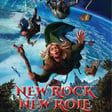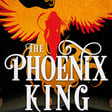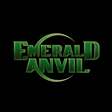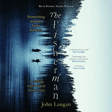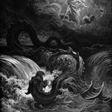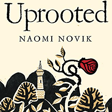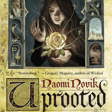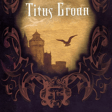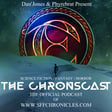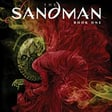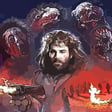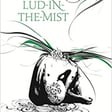Become a Creator today!Start creating today - Share your story with the world!
Start for free
00:00:00
00:00:01

Catching Up With The Chronscast Crew
Join Bean, Peat and Dan as we talk about our various works in progress, our own writing styles, triumphs, and what listeners can expect from our next few episodes.
On the menu are: commercialisation versus art and independent literature, the late great David Lynch, short fiction; what are the rules and whether or not to break them. We talk about shared fictional universes. We talk about our various progresses with our work, whether or not to self-publish.
Elsewhere, Bean drinks some tea, Dan talks about his cat, and Peat talks about bastards.
Transcript
00:00:14
Speaker
Hello everybody and welcome along to Cronscast, the fantasy science fiction and horror podcast. I'm Dan Jones. I'm Chris Bean. And I'm Pete Long.
00:00:26
Speaker
We're doing something a little bit different today. We've taken a pretty long hiatus from recording any episodes, but we're back and we've got a new lineup of guests for the next few weeks and months. And we've got a new lineup of books and films that we're going to be looking into.
00:00:44
Speaker
And we're going to be talking a little bit about ourselves and each other, which we don't normally do, but I think, you know, after 26 episodes or so, I think we've earned the right to do that, wouldn't you say?
00:00:55
Speaker
Definitely. Yes. I also feel like we need to talk a lot more about horror, of course. i think I think horror gets ah <unk>s its fair share of airtime, actually, on Kranzcast. I think we do all right.
00:01:08
Speaker
Yeah, but you're not the one editing them, so I'm the one that has to listen to all the fantasy episodes and begrudge them, and reading fantasy at the moment because of the upper upcoming episode with Pete, which i won't I won't spoil the book we're doing, but it's part of a trilogy about bastards.
00:01:24
Speaker
Pete, what's he talking about? ah You will all find out soon enough. In fact, should I give little hints about what we've got dropping?
00:01:35
Speaker
I think we should. Just some little hints, yeah. Yeah, well, as Chris said, we've got a trilogy all about bastards. um isn't ah Just to be clear, that's not about us, right?
00:01:51
Speaker
I mean, not yet. I don't think we've got to the stage where we're writing books about ourselves. Well, you you know, I just put two and two together. and Right. um We've got some foundational sci-fi.
00:02:06
Speaker
We do. 19th century sci-fi, to be exact. So yeah you can probably guess what that leans towards. But we got when we got a very special guest, actually, who's coming on to talk about 19th century science fiction.
00:02:20
Speaker
Yep. um very knowledgeable on the subject. And we've also got a sort of a slice of life comic for once for better phrase. Yeah, but by an author we have covered before.
00:02:33
Speaker
So there's another little clue for everybody. That's going to be very cool, actually. Looking forward to that one very much. um We're hoping to secure a couple of old friends onto the podcast as well. There's been a lot going on ah in the outside worlds. Recently, we released our interview with Aparna Varma, which was ostensibly going to be about Gaiman's Neverwhere. And that's been the saga that's kept on giving, unfortunately, in the in the last few weeks.
00:03:05
Speaker
um And also in the news has been the sad death of David Lynch. And know Bean and and I were both huge fans of David Lynch. So we are hoping to do something to cover a small slice of Lynch's considerable output that would be that would be something i think we both would look forward to don't you think yeah i am i would love to do loads of of lynch particularly twin peaks but you just can't address that unless you have a podcast that's specifically to twin peaks it feels like it's its own thing doesn't it yeah so i think we're settling more towards his uh individual one of his individual films And it's it's weird because we are a a genre fiction podcast and we, so Bean and I were having a chat not so long ago thinking, does he actually fit into any of, you know, fantasy, science fiction, horror?
00:03:59
Speaker
and well and And, you know, A, it doesn't matter because it's David Lynch, so who cares? Let's just do it. And B, sort of yes. Is that fair? Well, I mean, I would say there's...
00:04:14
Speaker
he's ah He's a genre to himself. I think I said that to you on a WhatsApp note. But um when you you know Twin Peaks is seat is seen as a horror sometimes, a comedy, as a thrill. you know like There's so much going on in that.
00:04:24
Speaker
But then you have horror of Elephant Man, political, social horror. And then you have the horror of um you know the the weird nightmare horror of Eraser Head.
00:04:35
Speaker
Yeah, and Mulholland Drive is a fantasy of sorts. Yeah, there's so much from all the details. I mean, don't know Lynch's output as well as the two of you, but I feel like he'd probably fit very well into the genre of weird.
00:04:48
Speaker
yeah Yeah, and Eraserhead is also dystopian as well. yeah It's certainly dystopian. I mean, you could argue Elephant Man is dystopia as well, and Blue Velvet.
00:05:02
Speaker
And weird might be seen as separate, but really it's basically a horror fantasy sci-fi hybrid. It's all under the umbrella. It's just definitely a very odd way of looking at it that doesn't necessarily seem that way at first to many people.
00:05:18
Speaker
And I like hes the fact that he's an unapologetic creative when it comes to his output, whether it's a his painting or whether it's his um his films.
00:05:29
Speaker
um He just refuses to compromise or explain And he, you know, I was listening to a podcast last week or the week before somebody had asked him for some tips.
00:05:41
Speaker
Oh, it was ah Stephen King. Stephen King was on the King cast, um a rare Stephen King interview. And he was saying he hed he was doing maximum overdrive, which isn't the most. ah lauded film but he was um he was saying he Stephen King was up David Lynch was filming and he'd asked him for some tips and he said he gave me three different answers and then said you know what it doesn't matter just do you just do it your way and I think for writers you know the writing The writing part of this podcast or the people that listen um further the from the writing point of view, that's really important because I think there's a lot of prescriptive advice happens about writing and expectations and people thinking about the audience before the story, thinking about an agent before the story, thinking about...
00:06:29
Speaker
you know that that publishing side of it before they've even got a product and so I've always been really um a banner man for for David Lynch in that respect as well because I find myself often justifying choices I make creatively so I'm partisan when it comes to David Lynch.
00:06:46
Speaker
I think we're both i think you and I particularly are very similar in that respect you know we both march to the beat of our own drum to some to some extent.
00:06:57
Speaker
um I know that all of us and and know the the the circles that we frequent like Wigmore and Thompson and people like that, they all had the same experience where, especially when you're starting out writing,
00:07:11
Speaker
you're looking for the rules, you're looking for a framework to try and grapple against, you're looking for something to grasp so that you know where you are in relation to, you know, whether you're at the center or whether you're at the margin or whether you're moving in the right direction. Because when you're starting, I mean, you don't know anything, what the hell do you know?
00:07:28
Speaker
But as you do progress and you get, you you improve, you don't have to, I feel that the rules, They're more like ah guidelines, right? And I was, do you know Rick Beato, the the music musician, YouTuber? he's very He's really great YouTuber for music. He's guitarist and a musician.
00:07:50
Speaker
And he was doing an interview with Rick Rubin, the one of the great producers. And Rick Rubin said, you know, what's right for one thing isn't isn't necessarily right for anything else. You've got to, sometimes digital might be the right way to record something. Sometimes analog is the right way to record something. it It's all dependent on what your vision is and what you want to achieve. So I'm completely with you. I think it's got to start and end with everything.
00:08:18
Speaker
what you want from your piece of art or whether you you know maybe you just want it to be as commercially ah accessible and successful as possible in which case there's ah obviously there's a framework for that or maybe you're like lynch and you just you've got a very clear artistic vision and nothing's going to deter you from sticking to whatever pathway you want to set out to achieve it Yeah, I mean, sometimes, though, it's not even a case of you having a pathway that is divergent from you know received wisdom. It's just you know a lot of people who are who write who come come from a place of fear saying, oh, you can't do that. you know You never get published. And then, especially nowadays with the democratization of publishing and self-publishing and just...
00:09:06
Speaker
You know, you're seeing a lot more, I've enjoyed a lot more independent um literature over the last few years because I'm not reading something that is following three act structure or they save the cat kind of garbage. You know, it's, it's true. and But I think also the kind of stuff I like to read is tends to be more experimental anyway.
00:09:29
Speaker
yeah. but Yeah, well, you're a big fan of short fiction, which is which is the sandpit, isn't it, really, for fiction, because you get to experiment with an idea. And if it's great, then you can expand on it.
00:09:42
Speaker
So short fiction is is the way. Hopefully, that's another thing I mentioned, we if we're lucky, we may get a recurring guest coming back, and we may be looking at some short fiction. Yeah, I really hope he says yes.
00:09:55
Speaker
Another little clue for everybody. Yeah. So... um What's everybody been working on Well, let's go to Pete because ah he's got he's been very busy.
00:10:07
Speaker
I've been talking to him and also he's been very quiet so far. Um, I have indeed been very quiet and, um, I'm just going to quickly touch back on what was said because whenever people talk about the rules of writing, I remember an article by Terry Rossio in which he talked about the rules he made for, um, evaluating screenplays back when he was a reader.
00:10:33
Speaker
And in the article, he says that great art is often great precisely because it breaks the rules. Um, and freshness and that sense of wow that hits the audience. It it requires a divergence from tradition usually.
00:10:56
Speaker
so I mean, that that's always in my head and well, hopefully at some point in the next couple of years, I will be able to show my own divergence with tradition because I'm currently talking with an agent i'm waiting for any day now uh edits to put on my manuscript so i can send it back to her and work from there towards you know signing an official deal and sorry hang hang on pete so is that a deal with the agency or or a deal with the publisher
00:11:34
Speaker
with the agent. Okay. And then look, the fact that they've sent back suggestions for edits, that's, that's pretty encouraging. yeah Not yet. Not yet. As I said, any day now, okay I'll get those.
00:11:47
Speaker
And um yeah, hopefully from there, it's approaching publishers and see how that one goes. What are you gonna say, Chris?
00:12:02
Speaker
Drink your tea. I tried to i tried to mute mute myself and I pressed the put your hand up and I didn't want anyone to hear me drinking my tea. So I would still have my mouth full when you said, what do you want to say?
00:12:14
Speaker
Thank you, Pete. and So you put your hand up yeah just so that everybody can hear you taking a slurp of your tea. don't have anything to say. I was listening. And you're not allowed to edit out you slurping your tea either.
00:12:26
Speaker
Yeah, but it's more work for myself. I don't want to do. Sorry, that That's true.
00:12:33
Speaker
Yep. So um that that's where I'm at. And um I mean, i'm in the early stages of getting, I've got some of the feedback. And I have to say, I mean, one thing I've always struggled with in writing is what does a finished product look like? And to a certain extent, ah there's no such thing as a finished product. It's you saying, I've had enough of this, or it's good enough.
00:12:56
Speaker
You can always do more with it. But being able to say, they thought this is what Philip Pullman he says that yeah and he's like one of the greats and he says at some point you've just got to say it's good enough let it go Yep.
00:13:11
Speaker
I mean, I remember reading the same advice in a David Gemmell interview in which he said, all writers think if they had another three months, they could improve it radically. and They're usually lying to themselves.
00:13:23
Speaker
Yeah. You hit a point where you can't improve it. but And there's a point where you just want to get rid of the bloody manuscript as well. just Just having come off the back of editing, I'm i'm at that point. going Knowing exactly what it looks like when you can say, okay, but this is...
00:13:40
Speaker
about as good as it will get. Like, this is what a fine polish looks like. I'm very excited to go through this process and
00:13:52
Speaker
go through the edits. I mean, we've already talked a bit about um blocking, you know, the whole concept of making sure you have the right events and the right sequence to get the right emotional reaction.
00:14:05
Speaker
And mean it's always been something I've thought about, but it's never something I've been able to approach in really clear detail, having gone through it with a professional.
00:14:16
Speaker
And honestly, um I think I'm more excited about going through this process and the possibility it will get published on the other side. And maybe that's because I'm one of life's pessimists and I'm always expecting something to go wrong.
00:14:30
Speaker
But, um, just from the process of craft and knowing more about stories, which is, you know, why I'm here. I love to talk about stories. This, this is going to be big and pretty cool.
00:14:44
Speaker
Excellent. Yeah. And, um,
00:14:50
Speaker
so I think it's also, and it's it's nice to go through that process with a professional as well. I think that's that's a difference. so When you're doing it by yourself, it's a bit of a slog when you're going through your own manuscript.
00:15:04
Speaker
with Sometimes you'll get external feedback from, for example, a beta reader, for example. But going through it with a professional, there's a difference there. Somebody who knows something.
00:15:16
Speaker
what's wrong, what can be improved, what's what's good. you know yeah and Really, what's good. I know you've been going through it for a second time now. So um has there been any difference between go number one and go number two for you?
00:15:31
Speaker
um Yeah, okay. So but i my my next book, The Green Man, is going to be released in April. And so about a month ago, I did finish all the editing with ah Envelope Books.
00:15:46
Speaker
who's the small press publisher that I'll be publishing with. And previously I published with Snowbooks, another small press that that they published Manowar. And yeah, this time round, it was definitely more involved. but Last time round, there was a development... Well, it wasn't a deep developmental edit. It was a shallow developmental edit.
00:16:10
Speaker
I mean, they... They said that it was, they loved it the first time around. So they didn't see much to change. um You know, they made some light changes here or there, but not much with Manowar, but with Envelope, Stephen, that the head publisher, he said, you've got the bones of something really great, but we're going to have to change quite a bit. And I thought, okay, well, this is this is different.
00:16:35
Speaker
It took a long time. it was hard work, actually. um ah didn't always enjoy it I didn't enjoy the first round of changes. After I got and over that mental block of doing the first round of changes, the second round of changes was easier.
00:16:48
Speaker
And then the third round of changes was very light. You know, at that point we were just sort of cutting out continuity areas and things like that. um But there were some we used pretty fundamental, mean, Bean, you've read it twice, right? The Green Man.
00:17:02
Speaker
And there is, so when you read the published version, it'll be quite different. The bones, the structure of the story the same. Yeah, just for just just for those who are hearing about The Green Man, Dan's latest book for the first time, um I finished it when I was beta reading it couple of years ago. was it a couple of years ago?
00:17:21
Speaker
and might have been three years ago now. And... um I was so moved and sad, I just immediately started reading it again. So that was my um my experience to the Green Man.
00:17:33
Speaker
But also, you're talking about your edits and stuff from, because I think that's also best saying one of the reasons why we've delayed in these podcasts is because you've had so much on your plate, especially with the editing and the new job. But the... um the The Man of War and The Green Man ah two so different ah novels and there's a much more literary ah feel to The Green Man that isn't in um Man of War and I can imagine that required a bit more wrangling than The Man of War definitely felt like... It's like a black mirror, dark mirror, dark mirror. Yeah, yeah, yeah. It's a dystopian. It's a dystopian vision of the future with with an eye on AI and robotics and stuff like that, wasn't it?
00:18:16
Speaker
But it was very... the The structure of it was a commercial thriller, really, commercial science fiction thriller. um Green Man is not like that at all.
00:18:27
Speaker
But going back to what you said, Pete, about ah what we were all saying about art... ah My ideas are not, I don't know, I rarely like retreading the same ground.
00:18:40
Speaker
So I did The Man of War. I don't think I'll ever write a book like that again. i don't think I will. um ah don't think I'll ever write a green man a book like The Green Man again, which is a a medieval, quasi-supernatural Horror?
00:18:56
Speaker
Mystery. Mystery is a better word. ah like And so I don't think I'll write anything like that again. Although Stephen wants me to write a sequel. How do you hell do I... I'm probably not going to write sequel.
00:19:07
Speaker
But it was yeah, it's different. What were saying, Pete, about... what what's what's real about art is about so maybe something new. i always I was having this, God, who was I talking to? Somebody at work, I think.
00:19:21
Speaker
We're talking about books. And the way that you determine something that's truly artistic, um Well, no, if you're not writing, you know, if if you're writing something with a message, you don't want it to be too on the nose because it can quickly turn into sort of propaganda or proselytizing, you know?
00:19:39
Speaker
and that's, you can, yeah, polemic. And you can immediately, you can smell it immediately. And as soon as the author's got an agenda to push,
00:19:51
Speaker
It's like, no, i'm I'm out. That's me personally. i'm like, I'm out. Even if it's within my echo chamber, whatever that looks like, or at a gri I just don't like it. ah just It's like what separates J.K. Rowling. So um obviously she had her masterpiece with the Potter books, Harry Potter, and then she wrote A Casual Vacancy, which is I just thought was...
00:20:14
Speaker
know if you've read it, but I thought it was drivel because it's so clearly propagandistic. Well, it also got very pedestrian reviews, you know, which which when you've had that sort of cultural iconic moment with something like Harry Potter to then get get sort of just, yeah, reviews. That's worse than, you know, divisive and reviews.
00:20:38
Speaker
Yeah, I suppose. How do you follow something like Potter? You can't really. It's interesting what you're saying about you know not wanting to go to the same well again, because I always have the problem of I'm never quite sure what I want to write because I have too many ideas.
00:20:56
Speaker
Yeah, you're the Richard Maddock of the group, aren't you? This time I let myself be guided by, well, if this thing sells, they'll probably want a sequel. So I decided, okay, let's see what that would look like.
00:21:12
Speaker
but I very much like the characters in this book. It's a sort of trad fantasy murder mystery. Yeah, tell us about it.
00:21:23
Speaker
Goodness, it's a very difficult book to say much about. It's basically an old disgraced war hero ends up down on his luck and wanders into a miscarriage of justice involving a very mouthy street thief.
00:21:39
Speaker
and decides to try and fix it despite knowing absolutely nothing about finding murderers. So it's very much the whole fish out of water. It's very much the second beginning.
00:21:50
Speaker
Um, it's all like probing into ideas of being heroic. Cause that's a big part of what draws me to the fantasy genre, this idea of heroes and what it means to be heroic.
00:22:05
Speaker
Um, The first book was, it took a lot of wiggling to find the right story, but then it was like lightning out of the pen. And the second story, it's it very interesting because I'm trying to work out exactly how these characters evolved in the time away from the page. And then i look at it think, oh goodness, I completely undercutting the first book?
00:22:32
Speaker
It's a very different experience. ah again looking forward to where it goes
00:22:42
Speaker
have you have you decided on titles for these oh god no absolutely see i've read the first if you're if were if you're talking about the thing i think you're talking about then i've read the first one it's a great story it has the working title of gumshoe paladin and everybody who hears it says that must be the title i'm like that's not going to be the title it can't be, can it? Because it's an, it's an, it's an anachronism. Yeah. Yeah. So it's a, it's such a shame because if if you introduce some sort of time travel element, you know, where, like i think if I was to write it as an overt comedy, then I could do it.
00:23:22
Speaker
Yeah. Yeah. But you transpose it to the 1940s. If he moves forward through time into the 1940s, New York or something, then you'd be sorted. yeah Maybe in 20 years' time, I'll revisit and I'll do an entirely different series based on the same original concept and use Gumshoe Paladin as a title. But that that's a who knows.
00:23:44
Speaker
So this is this is what you're waiting for feedback about, right? Yeah. Cool. yeah That is a very good story. And what about the other one? Remember with a good first line?
00:23:56
Speaker
that cats? ah The story about a man trying to find his son's cat. Yeah, on a Friday night. Yeah, that that's stalled out in 20,000 words. Oh, shit.
00:24:10
Speaker
i will I will revisit it. I'll get over the stall, but we'll see see how it goes. One of the things you should, you know, in case you don't know about Pete is he's a big cat person. and And I think it's very important for writers to have support from, you know, we talk about writers groups, but I don't mean ones where you pop down to the church hall or the community center once a month. And, just you know, I'm talking about people that you got on really well with. So there's five of us.
00:24:37
Speaker
um and ah and you two particularly, I speak to um on WhatsApp, sending voice notes. um Particularly Pete and I, ah most days, will send up to 20 minutes of messages back and forwards.
00:24:52
Speaker
And it's a really important, um I think it's become a very important network, ah sorry, support system for Pete and me in terms of writing, just because you know we we write in splendid isolation.
00:25:05
Speaker
But one of the things that always populates his messages are his cats. So when I when I when we got that first line, I don't know, was that in our private chat or was it something you just said? I actually read it out to you. Yeah, that was um that was something that got me, because I'm not on a dog pup. Well, i'm I'm an animal person, but I prefer to have a dog to a cat if that's not ah sacrilegious Pete.
00:25:30
Speaker
But that really, really piqued my interest. I was like, this is something I could read with an opening line like that. Does the cat feature heavily in the story, or is it just as a MacGuffin at the beginning?
00:25:43
Speaker
Yeah. um My lips are sealed. I'll tell you something else as well that was interesting. is because when i just started reading Murakami's Kafka on the Shore.
00:25:55
Speaker
Yeah, he likes a cat, doesn't he? Yeah, and um like well that the whole the whole side thing about the character that speaks to cats and can understand cats and they help him um you know locate the things he needs to locate. So it was really provident hearing Pete talk about that.
00:26:13
Speaker
yeah put it stored then 20 000 words what a waste i've been so i've inserted it'll get used it'll get used good good i've i've written this cat into my into my work in progress as well it's called sir reginald no he's a very fat british shorthair That makes perfect sense.
00:26:37
Speaker
Yeah, since Chris mentioned our communication, i I know what he's been working on, and now I would like him to talk about it because he's managed to be quiet. Yes, you must.
00:26:48
Speaker
About um Pulpit Worms is my working title for a story I'm writing. not I've typically writeg been writing for 10 years um in the shared universe of the Sour Ground universe because of That's just how I like to work.
00:27:02
Speaker
um But this... I just got fed up with... canon you know and keeping my head on top of the canon because it's that universe goes from you know around the time of christ to 2150 in the future and it was just becoming too much and i just wanted a break and i just there's a couple of standalone novels i wanted to write and this one i'm working on is i it's it's it can it's born out of the the disappointment i feel when watching a really good apocalyptic horror or reading a you know and apocalyptic
00:27:35
Speaker
ah story and the end it's sort of saved like i want to see i want more films like 2012 where the planet is falling apart i want to see the devastation i want to see the aliens destroy the planet i want absolute annihilation um and you never really get that because you know hollywood at the end of the day is this sort of saccharine machine um and i've lately found some authors who do that adam adam neville is really good i'm reading um all the fiends of hell at the moment which is uh you know the the
00:28:06
Speaker
really horrible, unpleasant story, which I'm enjoying. um And yeah, so Pulpit Worms is essentially about um the end of the world. And really, I had the last, I mean, I put it in our writing group, I had the last the treatment for the last hundred you know thousand words um of numbers stop existing because I have um problems with numbers, dyscalculia and you know things to do with ADHD and stuff.
00:28:34
Speaker
And I hate numbers. I thought, well, there's nothing scarier to me than a horror book about numbers. So numbers and maths stop working and it leads to of the world.
00:28:46
Speaker
of end of the world That's really similar to... um No, it's not. It's completely original. Yeah, of course it is. Numerology features in quite a bit featuress quite a bit in horror, doesn't it?
00:28:59
Speaker
But that's that's all about you know using numerology to find Illuminati-type patterns in Well, I won't ask you to write the blurb, Dan. No, ah well, no, don't ask me to write the blurb. And my publisher, so Stephen, he says blurbs are going out of fashion. i said, are you sure?
00:29:16
Speaker
Are you sure about this? He said, yep. There's a school of thought that's coming down the road that says we don't need blurbs. Some of the biggest... ah Okay, fine. Because I asked him, am I going to write the blurb for this, for for a Green Man? He said, no.
00:29:30
Speaker
Okay, fine. Anyway, and yeah, so numerology, but also you ah about numbers. I was thinking about three-body problem because the one the the conceit in three-body problem is that physics breaks down.
00:29:47
Speaker
That's... that's Yeah, so so the so the the theoretical scientists and the sorry the experimental scientists can't actually make any fundamental ah breakthroughs technically because the yeah the aliens have sent their photon computer, I forget the name of it, what is what's it called? Sofon, the Sofon. They send the Sofon to Earth to basically fuck up the supercomputers and the ah synchrotrons and the particle colliders, particle accelerators and all that.
00:30:16
Speaker
So physics breaks down. That's the conceit. So I like it. That's sort of the... but it's that That's not really the ah narrative drive of this. it's sort of but So there are no aliens?
00:30:27
Speaker
No, there's no aliens. Or are there? Well, there's idiot gods. But um I don't want to go into it too much. But the thing is, I wanted to write... I've been going through my own journey the last two and a half years with my ADHD referral as a 52-year-old. It's been just so...
00:30:47
Speaker
i can't I can't put into words what it's been like. And I wanted to write a character who has ADHD and to write. I like Dickens, the way he writes parenthetical thoughts. There's a lot of authors I like that write parenthetical thoughts. And I think parenthetically, you know, because of the ADHD, I always have that. And it and it's very challenging trying to write a character who is having all these parenthetical thoughts, similar thoughts, is trying to have a a coherent thought, but then it's oh something not something shiny, and I don't mean to be reductive about ADHD, but there is something happens that pulls his mind somewhere else. um
00:31:24
Speaker
So the themes of this story are really to do with mental health, neurodivergence, you know numbers and and basically I wanted to write something nihilistic um and and and have a break from my sour ground universe and and also I think I got, was it Quercus?
00:31:44
Speaker
Ann Perry. Yeah, Ann Perry read The Peg and the Pendrel, my Victorian um ghost story. That's a great book. Ann, thank you. and um The feedback I got was, this is a great read. I loved it.
00:32:01
Speaker
You know, I, it was amazing feedback. And she said, but I just don't know how I would sell it. And I thought, well, i can't Hands up who's had that feedback before.
00:32:14
Speaker
But what was that for? Hole in the Sky? Hole in the Sky. Yeah. So I... It's frustrating. is This goes back to what we were saying right at the beginning of the call, right? No, I know. it's No, it's lovely it's lovely. Honestly, it's brilliant. It's brilliant to get feedback by that.
00:32:29
Speaker
And then you get the... the ah the coder at the end, the caveat, I don't know what to do with it. Yeah, I wouldn't know how to to market it. And I think um that was enough for me to think, right, okay, job done.
00:32:42
Speaker
Because although I'd love to be published and stuff, really, I just love writing so much. And I'm like Pete as well with the the sort of ideas, the ideas coming and, you know, I have the folk horror I want to start after Earthworms, not Earthworms, now talking about Wigmore's. That's Wigmore's book. He's going to sue me. Yeah.
00:32:59
Speaker
um Yeah, i'll steal his book. Steal his book. i'll fit Well, I don't even want to use the... you know Pulpit Worms was just placeholder of a name for my... ah Just just spell spell worms with a Y. That'll piss him off.
00:33:12
Speaker
um So, yeah. um I've... and then And then there's just a lot going on for me in my writing at the moment. I think also, I never thought I'd say this. i would I'm drifting towards a more... I'm not a plotter, but I have been...
00:33:29
Speaker
plotting things a lot more, thinking, i know we're all to a certain extent, probably hybrid writers, but I'm much more being careful now about plots and stuff because, you know, there are I've got novels unfinished or finished novels, which I won't even bother doing anything with because they're such a hot mess.
00:33:48
Speaker
because they were just all... I think that's, for me, that's the argument for plotting, is that it helps you actually finish the damn thing. Personally, I don't know, what what do you think, Pete?
00:34:03
Speaker
I veered between both methods. i I find that I write best when I'm enthusiastic. So if I spend too much time of the enthusiasm time plotting...
00:34:16
Speaker
then I waste valuable writing time. So where I tend to be is what I call a headlights writer. I plot out as far as I can go. ah write it and I'll keep writing as long the spark's there.
00:34:31
Speaker
And then I'll stop, go back, have a look at the plot and try and go again.
00:34:39
Speaker
um I'm very much a writer who writes in sections. Yeah, that sounds like me, actually. But I've got a plot up to that section. Yeah. And then then maybe you hit the roadblock or or you you write a certain amount and then the the road the road forward presents itself. Yeah. Does that make sense? It's like a car with the headlamps, you know. You're driving down the road and the headlamps show you a certain amount of the way. I can get to that. That's literally what just said.
00:35:05
Speaker
All right. That's literally what he just said. he's said ahead What did you call it? A headlight wright? right yeah is that was that Oh, right. Okay. I didn't quite make the connection. God, that was me thinking be all clever.
00:35:18
Speaker
Just goes to show how good an idea it is. It was so good that I stole it immediately and passed it off as mine. It sounds a bit like, you know, um full beam? Full beams, yeah. beam writer.
00:35:32
Speaker
else i just have i just have my left indicator on and sort of go, what? Where? Yeah. Then everybody else is flashing you. You got your inic your plots going all over the place.
00:35:45
Speaker
Hazard lights. um So i think like we've spoken for, i think, 35 minutes. Is there anything you want to carry on? but i want to Well, look, I wanted to ask. okay so first I was going to put in this is like 15 minutes too late. But when you were talking about the Sour Ground universe, I was going to ask you just as a clarifier for people.
00:36:07
Speaker
uh listening it's a bit like the castle rock universe or the main universe oh yeah uh in stephen king right yeah um ah it's funny because to me it seems natural and and this is another conversation i'd had with pete a couple of weeks ago is i've reading the lies of lachlan mora i realize how bigger job fantasy writers have because they are, well, those kind of fantasy writers, I know fantasy can be, you know, more urban fantasy in London or whatever.
00:36:35
Speaker
And um i I think um they are creating a world from the ground up. Whereas for horror, I'm writing from, the kind of horror I like is, you know,
00:36:47
Speaker
existing you know modern day or whatever, excuse me, historical Britain, whatever, whatever, something that has already existed. um And so for me, when I was writing horror, it would be normal to think about that universe, but also,
00:37:05
Speaker
because I have big ideas or big stories rather, they can't it couldn't be one book. So it ended up, you know, Sour Ground, which was just one book, is now five books with different period you know time periods rather than the hot mess it was when it was just one book i'm trying to do too much.
00:37:25
Speaker
And that led to this shared universe. um And then within that, you you know We've moved into this time with Marvel and Star Wars where it's so popular now to have a shared universe and it's such bankable thing. I just think it helps in that way as well.
00:37:41
Speaker
um But also, it's i'm I'm a selfish writer. I'm writing for myself. So I want to occupy place that makes me happy. And and the Sour Ground universe makes me happy. It's based on my childhood in Weybridge and in Surrey and Oatlands Park, particularly in the lake there and all the weird stuff at the haunted hotel that we grew up in ah or next to And um yeah, I just, um it's it just sorry going on just it constantly gives me
00:38:12
Speaker
inspiration um So yeah, that's that's that's a sort of nutshell of the South Brown universe. You talked about self. Are you looking to self-publish then? No.
00:38:23
Speaker
Well, yeah, I mean, I mentioned my M.R. James um anthology. Oh, right. So that's different. Yeah. So as ah seven to 10 stories in the tradition of M.R. James.
00:38:36
Speaker
um I'm going to self-pub. But... you know I'm getting published, but I'm getting published in literary journals and stuff um for my short stories. um and and And I just, because I can send that. And then also there are people saying, oh, can you send me something? you know I'm being asked to write something or submit something from people that know my style.
00:38:58
Speaker
When it comes to novels, It means doing the synopsis, which is just like hell on toast and all those other things that you have to do when you're subbing. And I just, it's like Pete saying, he would rather spend his energy writing than researching and plotting. For me, I'd rather spend my energy writing and the enthusiasm writing than sending them off. And I know that's incredibly irresponsible if you want to get yourself published.
00:39:22
Speaker
But I have so much fun and I will lose three or four hours, you know, when I'm ah coasting that wave, right, writing, which I do on the Victoria line, most of the time, you know, um as well as at home, I can write or whenever I just put my white noise headphones in, and that's it, I'm, I'm off.
00:39:40
Speaker
um And so I'm never really thinking about publishing. And I just need to be a bit more proactive about that. You know, my website was meant to be
00:39:49
Speaker
it it was meant to sort of push me in that direction. Um, but that became a thing that I so was doing for myself as well, rather than pubs, you know, promote but it gives you, it gives all your stuff at home. This is beanwriting.com. Oh, thank you. Yes. Beanwriting.com.
00:40:03
Speaker
Um, it's 300 words and 75 word stories, um, that, you know, we've, that have passed must- Well, this is, yeah, this has grown from things that, the the story challenges, the writing challenges that have been hosted on Krons over the years.
00:40:18
Speaker
And some, yeah, like both of us have had things that have evolved out of those challenges. It's useful, have so we're going right back to the beginning of the call. We've got that framework, 75 words, and this is your theme and this is your genre.
00:40:31
Speaker
You've got a very clear framework. And you have to stick to it yeah to begin with. And then you might have something that you can go off piste a little bit with. Yeah. And yeah, it's a good sketch pad as well. Like you like you said, I mean, didn't you write one? Wouldn't the green man come from 300? no.
00:40:46
Speaker
so yeah no i noish um a short story, story came out of what?
00:40:55
Speaker
Oh, you know, a Man at War did. No, Man at War came. No, that's right. Yeah, Man at War started off as a 75-word story, which evolved into a 10,000-word story, which turned into a novel. Yeah, i I knew there was something. I thought Green Man, but also I'm trying to get Pete to participate more in those 300-word contests, but he's very resistant.
00:41:18
Speaker
I enjoy doing them. I just completely forget about them until one day after submission. Yeah.
00:41:27
Speaker
So what else is going on?
00:41:31
Speaker
Well, Pete's moved to America. Yes, Pete's in America. Western Pennsylvania, right? Oh, and you had a driving lesson today.
00:41:41
Speaker
Are you going to get a pickup truck? No. I didn't have a lesson today because I'm feeling totally grotty.
00:41:51
Speaker
Okay, that's that. Well, that's the end of that conversation then, isn't it? Okay.
00:41:58
Speaker
Right, well, thanks for listening, everyone. That's really a good goodbye. Yeah.
00:42:04
Speaker
ah No, we
00:42:08
Speaker
We've got a couple more minutes. i am I've got something to say. Go on then. It's helping me with my um writing, actually, is I started training as a counsellor.
00:42:19
Speaker
Yes, you must say about that. Yeah, and it was...
00:42:24
Speaker
I've always been ah you know in that kind of area, holistic pastoral care through teaching and stuff in my job, but as I've got older youre not you know i wanted to and and I've you know suffered my own ah trials and tribulations, I wanted to be involved in that. But one thing the knock-on effect is now, when I'm writing a character,
00:42:45
Speaker
I think so much about our counseling theory and you know you you're presented with a child in front of you who could be an adult, but they're still the child.
00:42:56
Speaker
They have their conditions of worth, they have their external and internal evaluations, sense of about evaluation, where it comes from. And it's really interesting to me now, um how sometimes I'm second not second-guessing myself, but I'm stopping myself when I'm writing thinking, hold on, is that a congruent thought? And using all this terminology and vocabulary from my counseling training, but I'm really enjoying it I'm only on my level three, so I've got um next year next year I'll start my level four, um which means you know I will start doing practice and stuff.
00:43:26
Speaker
But um yeah, that's That's my biggest news. That's pretty awesome. Well, I've got news as well, or some news anyway, so partial news. So Sky Empire, my band, we're recording our third album and we've got a new singer. So sort burning through singers.
00:43:43
Speaker
I thought you were the singer. No, no. that said Sorry, I shouldn't have said that. and We've got a new singer ah coming up in for for this album. I can't say who it is, though, but he is a known quantity. It's not Madonna, is it?
00:43:58
Speaker
It's not Madonna. It's not Madonna. get really excited though I know. I'm sorry to disappoint you. Look, we've we've had three albums so far and each one's had a different singer.
00:44:10
Speaker
So you never know. By the time we roll around to number four, maybe Madge will say... I'll have word. Yeah, what I'm missing on my CV is a bit of progressive metal. So let's do it.
00:44:22
Speaker
pete Pete is the one you should talk to then.
00:44:26
Speaker
Yeah. I guess that is actually my other bit of writing news. I've got back into reviewing again at a site called the goat review. oh keep yeah all sorts what's the name of it What's the name of the site? Sorry, the goat review.
00:44:45
Speaker
The goat review. yeah This is music reviews. oh All metal albums, yeah. Nice. Well, in that case, we'll have to pass you along the next Sky Empire album Yeah, I promise there's only a 43% child, so I will absolutely eviscerate it. 43%? I'll take those odds. I like those odds. Well, I'll do a review if you want.
00:45:08
Speaker
Yes, please do. You you can um assess its dance ability. Yeah, I'll say, well, there's not much voguing in it.
00:45:16
Speaker
can Yeah, can can you Vogue in 13, 16 time? That's the question, isn't it? um What I wanted to say, ah Pete, was um you're talking about these reviews. um I wanted to ask you were really prolific on your blogs. what Are you still blogging?
00:45:31
Speaker
um Less than I was. I hit the milestone I'd been looking for last year of a 365-day streak on WordPress.
00:45:43
Speaker
And I got that, and I was like, right, that's it. I'm just going to relax a bit about it now. That's pretty intense. 365 days. i I mean, I'd missed it on a couple of occasions as well. So I don't want to think about what my output was in about two and a half years of blogging. It was probably a thousand posts, but I'm still blogging just less than I was.
00:46:11
Speaker
funny, you're writing more now, aren't you, in terms of your your output for your novels is increased. if Maybe it's because you're not blogging as much. There's there's definitely a cost and cost I don't even know what I'm talking about is.
00:46:29
Speaker
Trade-off? there's a trade-off. And that is part of why scale back on the blogging to have more time. You can't do everything, right? There's so much stuff to do. I mean, we were all super busy in our own ways.
00:46:41
Speaker
You can't do it. I mean, that's the thing. Unless you actually make this as a career, you've got to make sacrifices somewhere along the line. It's very difficult. Hey, look, but I think um we should do a bit more as we go through this next series of episodes. We should chart how we're getting on with our writing.
00:47:01
Speaker
Yeah. As we come to, you know, because Pete's got irons in the fire, you've got irons in the fire, and I've got irons in the fire. We should just... keep tabs on what's going on. Yeah, I agree. i mean, when we started doing the podcast, it was going to have a lot more um of a writing ah skills and writing focus. And it's become much more ah just a chat about certain, you know IPs or whatever, or novels or I think um you know i I'd really enjoy that.
00:47:30
Speaker
I think also um you know in terms of our our own growth i say growth, does that sound a little bit cheesy? But I know i have been really, I've had my eyes opened in regards to fantasy, which I've been such a misery you know about over the years. like I won't read fantasy, I don't enjoy it.
00:47:49
Speaker
But the one I'm reading at the moment, you know, I'm really enjoying. It's long, but I'm enjoying it. um And ah WhatsApp message from Pete earlier this week, he even said, I think maybe I should read some horror, which really made me, you know, really shocked me because I know he's not a fan at all.
00:48:09
Speaker
I do read horror every now and again. Do you? Yeah. Oh, I don't think you write it at all. No. Well, I just finished reading The 120 Days of Sodom, and that's like the... It's not really a horror film, but it is ah a horror novel, but it is a horror novel.
00:48:26
Speaker
It's the worst thing. I'm intrigued by the Adam Neville book that you mentioned. be What was it called? um All the Fiends of Hell. All the Fiends of Hell.
00:48:38
Speaker
It's really nice British readers as well because, you know, it's set around Worcester and then goes down to Bristol and Exeter. and And so it's really, really, it's got that provincial feel.
00:48:50
Speaker
um You know, I suppose if you're american an American or somebody from a large country or continent reading it, huge a lot of the names of the places would pass you by, but you would get this sense of a very small place. Yeah.
00:49:01
Speaker
But you said it's quite nihilistic, right? Oh, very, yeah. I mean, i just read some something this week, ah this ah this the last batch of reading I did on it, and I was like, oh that's that's horrible. it was really i really loved it.
00:49:17
Speaker
It was really horrible, though. i just I was just thinking it was something it was going to be something else, but it wasn't. It was something just really horrible, and I was like, that's brilliant. Yeah. i I finished reading The 120 Days of Sodom. I'd never read it before. And I thought, I'll give it a go.
00:49:35
Speaker
because it's yeah And then it's free as well. And it's a seminal text. and And yeah, it's I had the same reaction that ah that's really horrible, but I didn't really enjoy It's like uber nihilistic.
00:49:52
Speaker
it's It's demonic in... the real sort of literal sense of the word. It's utterly yeah outrageous, appalling, atrocious.
00:50:02
Speaker
i would you And you think, how bad can it be? I always thought Desaad was one of these writers whose notoriety probably outweighs the actual content.
00:50:13
Speaker
No, that's not the case at all. Yeah, and I was glad that it you when you sent me that message of how much it disturbed you, because when we read Tadde Thompson's Jackdaw, and I was really upset by that, and you just thought, oh yeah great dark humor. And I was like, no, I took it really, you know, literally, and it was really horrible.
00:50:31
Speaker
Yeah. Well, we'll leave, we'll leave Desaad. Maybe we'll do Desaad at some point because it is definitely a horror. I mean, it was turned into a horror film by what's the Italian guy's name? Palace, Palace Sano. Is that right?
00:50:43
Speaker
then um You would know. It's a jello film. I don't know. No, I don't. You don't know. no i' I'm, I'm very limited on my jello. It's just house with the laughing windows again and again. Oh, okay. I thought you were a jello. I thought you were. I do, I do, but I, I'm, ah I'm not into murderers and and. Yeah. I mean, it's this, it's,
00:51:00
Speaker
Yeah, it's pretty sick. It's pretty, it's very extreme. i mean, Desaad has a point. And when you, I had, I, it was rattling around my head after finishing the book because, you know, some, some books just don't leave you alone or some films or whatever. You finish it and you think,
00:51:17
Speaker
i've finish most things and you just move on with your life. But this, this has stayed with me for at least a couple of weeks since finishing. And I've had to write some stuff down, which I'll, I'll publish at some point, i've done ah an essay on it to try and make sense of it all. Cause even though it is the most appalling stuff, um it, and I'm not being prudish cause I'm not a prude at all.
00:51:37
Speaker
It's just crazy. it's It's like taking the mask off of what it really means to be ah malevolent spirit. That's that's what Desaad is showing. And he's right. you know I think he's actually right about the way that he presents his four libertine heroes in quotation marks. He calls them heroes. They're they're not. um Yeah, maybe we'll do Desaad at some point because it's... it quite unbelievable the stuff there and there's there are i mean i've read the gulag archipelago and i don't know if you've ever read a book called the net the rape of nanking no know the one you're talking about the irish chang book yeah i mean they're non-fiction so 120 days is a bit of an odd man out in that sort of
00:52:24
Speaker
document it went yeah I said it on a voice note to you, didn't i When you were reading Moby Dick and you really struggled with the butchery scenes, because help Melville puts in some chapters detailing the the the visceral reality of wailing. It wasn't so much that, it was just the cruelty. The cruelty, yes, exactly. It it was cruel and it was barbaric.
00:52:45
Speaker
I never really had a problem with it as such because even though it was cruel and it was barbaric, it wasn't malevolent no as such. It was an industry. Yeah, definitely. but it was Whereas Dessard is... so was slavery <unk> is completely different. It is plunging the depths of malevolence.
00:53:04
Speaker
Anyway, that's a cheery note on yeah on which to to move on. Well, Pete, um he's probably the one we should. Yes, Pete, you've got to bring us back. Bring us back. Come on. No, was going to say Pete should be the one to read, to to do Desaad with you. um she Sounds right up his street.
00:53:20
Speaker
I'm just basically kicking the can down the road. There's no way I'm doing Desaad. No. Well, maybe. what Yeah. that is There is one way I would do Desaad, and that is appears as a prominent um little part of the Invisibles.
00:53:40
Speaker
which is one of my very favorite um comic books, yes. Wow, okay. if we ever If we ever get a guest to do The Invisibles, then I'm in. Okay, all right then.
00:53:51
Speaker
That's interesting. And I've got Madonna's sex book, and that's a bit desardish in places. LAUGHTER It's not the same. It's not the same. You didn't get sort of gaggles of ah New York truckers queuing up to buy copies of 120 Sodom.
00:54:14
Speaker
yeah Anyway, shall we call it, lads? Yes. Thank you if you've got this far listening to us talk about ourselves, but we wanted to give you a bit of an update and um tell you what the kind of give you a slight ah hint of what's to come.
00:54:27
Speaker
Yes. And I should apologize on behalf of Mr. Sexton, who was supposed to join us today, but he didn't. So there you go. But he's hell be he'll be back. He'll be back.
00:54:41
Speaker
Anyway, so um thanks for listening and speak to everyone soon. Ta-ta. Until next time.
00:55:08
Speaker
This episode of Cronscast was brought to you by Dan Jones, Christopher Bean and Pete Long. Special thanks to Brian Turner and all the staff behind the scene at Crons and thanks to you once again for listening.
00:55:19
Speaker
Join us next time when we'll be joined by our good friend Taddei Thompson. He'll be talking to us about the late, great David Lynch's masterpiece, Mulholland Drive.


